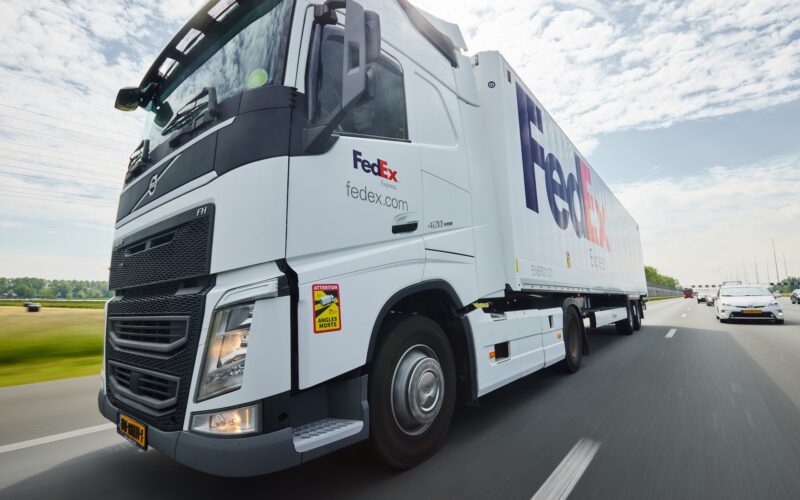FedEx Express Europe has begun using renewable diesel– made from organic matter or waste materials – to fuel a portion of its company-owned trucks in the Netherlands.
As of the beginning of November, FedEx Express instructed the drivers of these heavyweight, long-distance vehicles to refuel using renewable diesel as an environmentally favourable alternative to fossil-fuel diesel. Trucks will use this fuel when they depart the recently reopened FedEx Express road-hub in Duiven, Netherlands.
The decarbonisation of the heavyweight transport sector is recognised as more challenging than parcel pick-up and delivery, where the transportation company has already outlined its goal to transition to a fully electric fleet by 2040. The required mileage range, time needed to refuel, and the fact that, by the very nature of their operation, heavy goods vehicles travel between territories means they often require refuelling in multiple countries.
Using synthetically-made diesel offers an interim solution with the promising ability to drive down ‘well-to wheel’ carbon emissions by as much as 80-90% per litre. It means that while technological solutions are still being developed to help the industry transition away from using fossil fuels altogether, we can already make decisions to influence and reduce our scope one carbon emissions in our linehaul truck network – those generated by our owned vehicles.
Vinay D’Souza, Senior Vice President Planning & Engineering, FedEx Express Europe
The opportunity for reducing emissions in linehaul trucking with this fuel depends not only on supply of the fuel, but also on the infrastructure. FedEx Express use of this renewable diesel is currently small-scale and limited to the Netherlands, where its use is encouraged on continental routes from the Netherlands.
The FedEx goal announced in March 2021, to achieve carbon-neutral operations globally by 2040, includes all FedEx owned and operated transportation including parcel pick-up and delivery, its extensive European linehaul truck network, and aircraft. It also includes the company’s scope three emissions that are generated by contracted transportation services that play a part in the FedEx network. By demonstrating support and adaptation of diesel alternatives, FedEx is striving to make alternative fuels more viable, scalable, and ultimately accessible across the industry, as solutions to decarbonise challenging transportation sectors in Europe.



